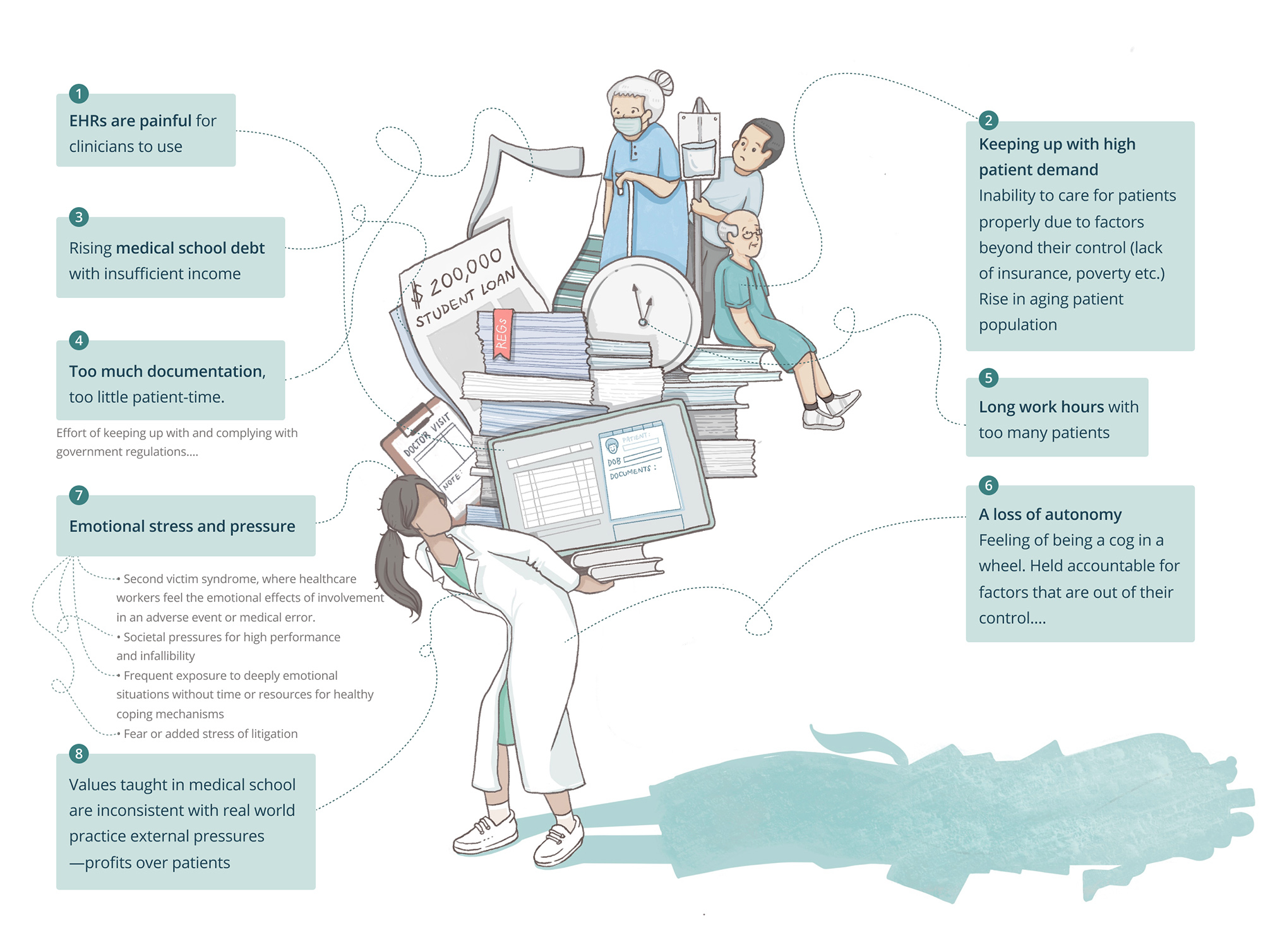
By: Sara Hussey, ACMS Executive Director
We’ve been spending a lot of our early days in our “Putting Self-Care in Healthcare” campaign focusing on creating awareness of physician suicide and burnout. This blog post is going to shift gears in order to speak directly to Physicians. There are many resources, support tools, and places to go for help if you are facing suicidal thoughts, feeling like you are facing extreme burnout, or are looking for a way to help a colleague or friend who may be experiencing those feelings.
Many organizations and resources are available to raise awareness of physician suicide and mental health support. Here are some resources and organizations dedicated to physician suicide awareness:
- National Physician Suicide Awareness Day (NPSAD): NPSAD is observed on September 17th each year and aims to raise awareness about physician suicide. Many events and activities take place on this day to promote mental health and well-being among healthcare professionals. This website includes a helpful toolkit for individuals and for organizations (health systems, hospital, medical societies, practices).
- American Foundation for Suicide Prevention (AFSP) – Western PA Chapter: AFSP has specific resources and initiatives aimed at addressing suicide within the medical community. They offer research, education, and support programs to help prevent physician suicide and their Western PA Chapter is a great resource for support and guidance.
- Physician Support Line: This is a free and confidential support line available to physicians and medical students. They can connect with volunteer psychiatrists who understand the unique stressors and challenges faced by healthcare professionals. No appointment necessary. Call the national support line at 1-888-409-0141.
- Medscape Physician Lifestyle Report: Medscape regularly publishes reports on physician lifestyle, including topics related to burnout, depression, and suicide. These reports provide insights into the challenges faced by physicians and can be useful for raising awareness.
- The American Medical Association (AMA): The AMA offers resources and information related to physician burnout and mental health. They have programs and tools to help physicians manage stress and prioritize their well-being.
- The National Suicide Prevention Lifeline: While not specific to physicians, this lifeline provides free and confidential support to anyone in crisis. Healthcare professionals are trained to handle calls from individuals experiencing suicidal thoughts. Dial 988 for immediate support.
- PA PHP – Physicians’ Health Program – The Pennsylvania Medical Society Foundation created the PA PHP with the mission of promoting early identification and facilitation of rehabilitation of physicians and other eligible health care professionals and trainees with concerns relating to substance use disorders, mental health disorders, and/or behavioral concerns. This is a confidential support service for Physicians. If you have additional questions, please give you can reach the PA PHP at (866) 747-2255 or (717) 558-7819.
- Physician Well-being Programs: Some hospitals and healthcare organizations have established well-being programs designed to support the mental health of their staff. These programs may include counseling services, peer support groups, and wellness initiatives. Here are are links to specific hospital system programs in Allegheny County: UPMC – Physician Thrive; AHN (employee login required): AHN-Wellness; St. Clair Hospital (awaiting link); Independence Health (awaiting link).
- The Physicians Foundation: One of the many goals of The Physicians Foundation is to address, with urgency, the immediate and ongoing impediments to physician wellbeing and provide the basis for improved practice environments and professional fulfillment. The Allegheny County Medical Society was recently awarded a $10,000 grant to work with The Physicians Foundation on a Wellness Toolkit that will be available to
- PeerRxMed: PeerRxMed™ is a free, peer-supported program designed to help physicians and others on the care team move toward thriving both personally and professionally.
Remember that seeking help and support is a sign of strength, and if you or someone you know is struggling with thoughts of suicide, it’s crucial to reach out to a mental health professional or a helpline immediately. In emergencies, call 911 or go to the nearest emergency room. Physician suicide is a preventable tragedy, and these resources can help make a difference in the lives of healthcare professionals.

